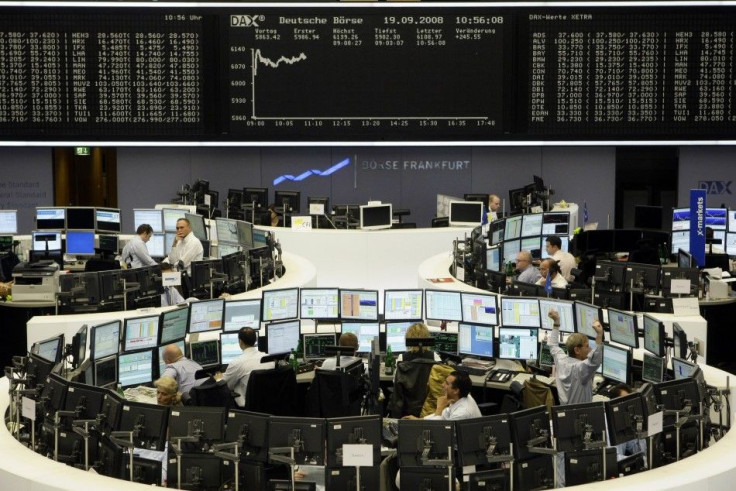Europe's Markets Rise Thursday at Mid-Day on Bargain Hunting

(Reuters) - European shares rose on Thursday in thin, pre-holiday trade as recent weakness prompted some bargain hunting, though strategists said political progress on the Eurozone crisis was needed before equities could make much more progress.
At 1213 GMT, the FTSEurofirst 300 index of top European shares was up 0.8 percent at 960.11 points, after falling 2.1 percent to a two-week closing low on Wednesday.
Andy Lynch, fund manager at Schroders, which manages 197 billion pounds ($305 billion) said shares were unlikely to gain significantly more until we see whether the political agreement this month (EU deal on greater fiscal unity) can be ratified and implemented.
He added: Id love to say businesses look cheap but they will stay cheap while we work though the politics.
He added that a breakup of the euro remained a risk for shares.
Stocks rose across the board on Thursday, led by insurer Old Mutual, up 10.2 percent after announcing it is to sell its Nordic business for $3.2 billion to cut debt and return surplus capital from the deal to shareholders.
Other insurers to gain included Germany's Allianz, up 2.9 percent and the STOXX Europe 600 Insurance Index rose 2 percent.
The STOXX Europe 600 Banking Index rose 1.2 percent, but is down more than 35 percent in 2011, with several banks having suffered writedowns on exposure to euro zone peripheral debt.
Credit Agricole fell 2.4 percent after Fitch Ratings downgraded its Long-term Issuer Default Rating to A-plus from AA-minus, and the French bank warned that it would post a loss for 2011. It will write off 2.5 billion euros ($3.24 billion) worth of assets and cut 2,350 jobs in a cull of its investment banking operations.
INDEX DECLINE
The pan-European FTSEurofirst 300 index is down more than 14 percent this year and has only recovered about a third of its fall from its February high to its September low.
Investors have cut their exposure to risky assets such as stocks following an escalation of the euro zone debt crisis and the United States losing its triple-A credit rating. Weak data from major economies has sparked concern they may go back into recession.
The decline in the euro zone's private sector eased a little this month, but a recession still looks inevitable with the region's periphery struggling badly, a key business survey showed on Thursday.
People are realising that it will take a while before things get better. In the short term, we are stuck with some very nasty economic data and going into 2012, economic conditions will not be very favourable, said Philippe Gijsels, head of research at BNP Paribas Fortis Global Markets.
Technical analysts said indexes would struggle to break though key levels.
Investors are looking for some value in certain beaten-down stocks, said Bill McNamara, technical analyst at Charles Stanley.
But this rally is likely to be short-lived as there seems to be no follow-through buying after a good day. Investors are losing patience with the market and are starting to think that there isn't going to be a positive and lasting solution of the euro zone problems anytime soon.
One positive for equities on Thursday was Spanish bond yields falling, after the country surprised markets by selling far more than the amount targeted in its last bond sale of the year, although its cost of borrowing remained close to euro-era highs.
Bond yields for Spain and Italy have been a major focus for equity investors in recent weeks as they have approached the levels that prompted countries such as Greece to require a bailout.
© Copyright Thomson Reuters {{Year}}. All rights reserved.





















